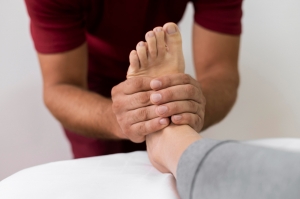Aging is often seen as a stage of life filled with new challenges, but with the right support, it can also be a time of independence, growth, and fulfillment. Seniors today have more resources at their disposal than ever before, thanks to rapid advances in technology and innovation. From tools that support physical health to platforms that nurture social connections, these solutions make everyday life easier while reducing risks associated with aging.
Below are some of the most useful tools available to seniors today, along with insights on how each one contributes to a healthier and more connected lifestyle.
1. Medication Management Apps
For many seniors, juggling multiple prescriptions is part of daily life. Missing a dose or taking the wrong medication can lead to serious health consequences. That’s why medication management apps are so valuable—they provide reminders, track dosages, and even alert caregivers if something is missed.
Apps like MediSafe and Pill Reminder go beyond simple alarms. They provide refill alerts, share medication schedules with family members, and allow doctors to monitor adherence remotely. By simplifying complex regimens, these tools reduce stress and promote better health outcomes.
In addition, having a reliable system builds confidence for seniors living independently, giving them and their families peace of mind.
2. Fall Detection Devices
Falls are one of the leading causes of injury among older adults, and recovering from them can be difficult. Wearable fall detection devices are designed to reduce response times in emergencies by automatically contacting loved ones or healthcare providers when a fall is detected.
Popular devices like Medical Guardian or Apple Watch with fall detection not only track falls but also monitor heart rate, steps, and activity levels. These features encourage seniors to stay active while ensuring that help is available if needed.
For seniors who value independence, knowing they have a safety net in case of a fall offers reassurance. For families, it eases the worry that comes with not being physically present around the clock.
3. Useful Apps for Everyday Health and Independence
Smartphones and tablets have become lifelines for seniors who want to stay engaged and proactive about their health. There’s an app for nearly every need:
- Cognitive health: Brain-training apps like Lumosity or Elevate keep the mind sharp with puzzles and exercises.
- Nutrition: Meal-planning apps simplify shopping lists, recommend senior-friendly recipes, and help track daily nutrition.
- Fitness: Apps like SilverSneakers or MyFitnessPal support seniors with gentle exercise routines and activity tracking.
- Social connection: Video call apps such as Zoom or FaceTime bridge the gap between generations, making it easier to stay connected with friends and family.
One especially innovative option is WellthApp, which rewards seniors for staying consistent with healthy routines. Using healthcare incentives motivates older adults to take medications on time, attend appointments, and follow care plans. For seniors managing chronic conditions, this extra layer of encouragement can be the difference between staying on track and slipping into unhealthy habits, thus creating positive member health outcomes.
Apps like these not only enhance convenience but also empower seniors to live more independently while building confidence in their ability to manage everyday tasks.
4. Telehealth Platforms
Mobility challenges, transportation barriers, and long wait times often make in-person doctor visits difficult for seniors. Telehealth platforms are changing that by bringing healthcare directly into the home.
Services like Teladoc Health and Amwell connect patients with licensed doctors, nurses, or therapists through secure video calls. Seniors can receive prescriptions, follow-up care, and even specialized services like mental health counseling without leaving home.
For those with chronic conditions, telehealth also provides consistent monitoring, reducing the need for frequent hospital visits. In many cases, seniors report feeling more in control of their health when they can consult a professional from the comfort of their living room.
Telehealth also reduces exposure to illnesses, which is particularly valuable for aging populations with weakened immune systems.
5. Smart Home Assistants
Voice-activated devices like Amazon Alexa, Google Home, or Apple’s HomePod are much more than entertainment gadgets. For seniors, they serve as personal assistants capable of handling a variety of tasks:
- Setting reminders for medication, meals, or appointments.
- Controlling home lighting, thermostats, and appliances with simple voice commands.
- Providing instant access to weather updates, news, and music.
- Placing emergency calls when needed.
For seniors with mobility issues or vision impairments, these tools are especially helpful. The ability to control the environment hands-free increases independence and reduces frustration. Families also appreciate the reassurance that loved ones can easily call for help if needed.
6. Online Community Platforms
While physical health is important, emotional well-being is equally critical for seniors. Social isolation is a growing issue among older adults, with loneliness linked to higher risks of depression and cognitive decline.
Online community platforms specifically designed for seniors, such as Senior Planet or GetSetUp, offer ways to connect with others, attend virtual classes, and participate in interest-based groups. Whether it’s joining a book club, learning a new skill, or simply chatting with peers, these platforms create opportunities for meaningful engagement.
Social connection plays a key role in mental health, and these platforms help bridge the gap when in-person activities aren’t possible. By staying socially active, seniors can reduce feelings of isolation and maintain a greater sense of purpose.
Final Thoughts
Aging doesn’t mean giving up independence—it means adapting with the right tools and support systems. Today’s technology is designed to empower seniors, from medication reminders to virtual healthcare and social engagement platforms.
- Medication apps reduce the risk of errors.
- Fall detection devices provide safety and reassurance.
- Everyday apps, like WellthApp, motivate seniors with healthcare incentives.
- Telehealth makes medical care accessible at home.
- Smart assistants make daily living easier.
- Online communities keep seniors socially active.
By integrating these tools into their routines, seniors can live longer, healthier, and more fulfilling lives. And for families, knowing that their loved ones are supported by these technologies provides comfort and peace of mind.
The future of senior care isn’t just about managing health—it’s about enhancing independence, boosting confidence, and ensuring that aging is embraced as a stage of life filled with opportunity rather than limitation.






